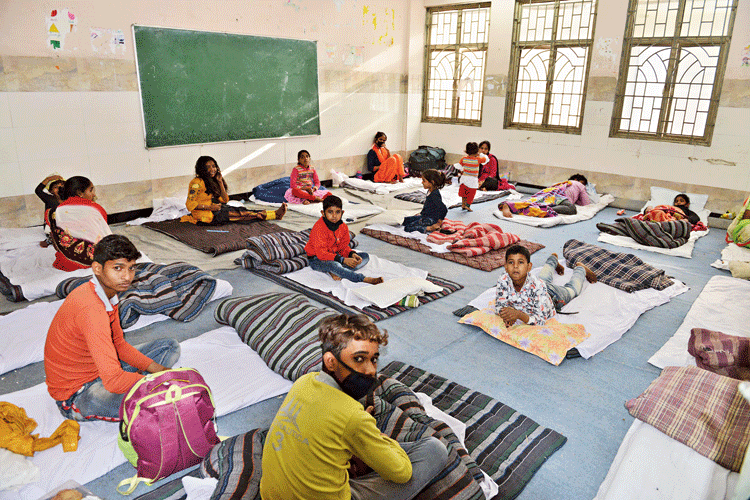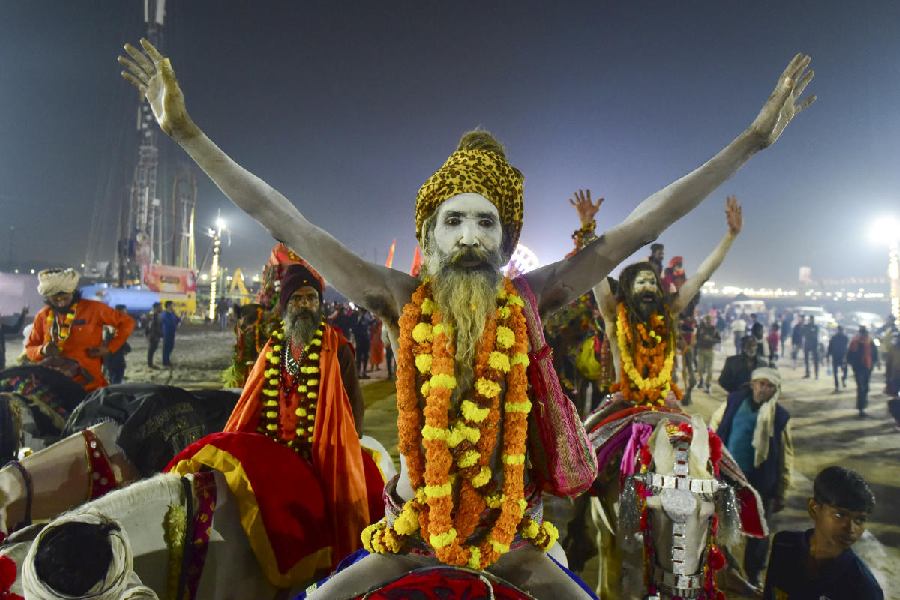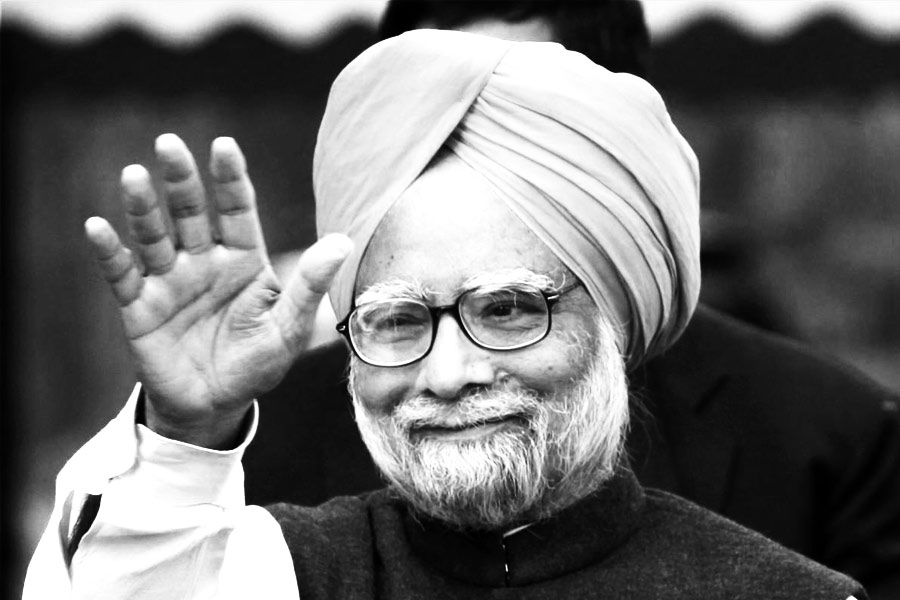The current lockdown has drawn parallels with the demonetisation on many fronts: the short notice, the lack of planning or preparedness, the ad hoc measures announced daily, the blow to the poor’s earnings and the economy as a whole.
But several academics have warned that the lockdown over the Covid-19 outbreak will inflict far more suffering on the poor than the note withdrawal of November 2016 did, because this time they may receive little help or understanding from those better off.
One of the academics, labour economist Amitabh Kundu, has estimated that nearly 2 crore people — 1.2 crore interstate migrant workers in the informal sector and 80 lakh street vendors — risk losing employment because of the lockdown.
Kundu, distinguished fellow at the Research and Information System for Development Countries, has analysed data from the National Sample Survey Organisation and the 2011 population census to derive his estimates.
“The panic reaction during the demonetisation brought serious problems but different groups with complementary interests mutually cooperated, exchanged goods based on trust and relationship, etc, and saved the vulnerable people from extreme misery,” he told The Telegraph.
“This is unlikely to happen in the present crisis, as different groups have different priorities.”
Another economist, who asked not to be named, echoed Kundu and cited how the Covid-19 scare was dividing society.
“See, how those under home quarantine or those returning from their travels are being socially ostracised. Migrant workers, airline staff —even doctors and nurses — are facing harassment and attempted eviction,” he said.
After the demonetisation, he argued, people had largely felt they were all on the same boat and there was a shared concern to help the most vulnerable.
There was an unspoken solidarity among many in the middle and working classes because of a belief — which later turned out largely unfounded — that the measure would bring the corrupt among the rich to heel.
“However, such solidarity seems absent now because of the threat of catching the infection from others. That self-interest is pitting neighbour against neighbour becomes more evident every day,” the economist said.
For instance, in Delhi the government has stuck posters in front of the lodgings of those advised to stay in home quarantine. The posters ask people not to visit these homes.
Neighbours keep a close watch on the occupants of such houses and shout at them if they venture out. Sometimes they even ask these families to leave the locality for sometime even though that would be a violation of quarantine and potentially help the virus spread in the community.
Certain gated colonies in Delhi and other cities have barred the entry of people from outside.
“And people from certain regions (the Northeast) have been called ‘foreigners’ and denied provisions at shops because of their features,” the economist said.
Another academic, who too requested anonymity, said the falling levels of fellow feeling were only partly explained by the objective circumstances of the situation.
In contrast to the demonetisation — which forced everyone into long waits in queues — human-to-human interaction has been grossly reduced by the current social-distancing norms, he said.
However, a part of the problem was the emotional distancing and intolerance caused by the different interests and priorities of different groups, he added.
“For example, the working class will risk infection and move out of home in search of earnings — unless given adequate relief — because it has no backup financial support. The middle class may resent this,” he said.
In this context, Kundu particularly highlighted how migrant workers, left unemployed by the lockdown, were attempting to return to their homes — sometimes over 1,000km away — on foot, on cycle-rickshaws or packed like sardines and risking infection on the few available buses.
“The state governments must work with the private corporate sector and non-government organisations — including worker bodies — to ensure there is no massive loss of employment,” he said.
Kundu estimates that about 6.5 crore people now live outside their states. Of these, a third or about 2.1 crore are engaged in some sort of employment.
Thirty per cent of this group — or 60 lakh — are casual labourers working mostly on short-term contracts; another 30 per cent earn monthly salaries but work in the informal sector without any job security.
These 1.2 crore people, he says, are at the risk of losing their employment because of the lockdown, along with the about 80 lakh street vendors who have mostly come to the towns from their villages within the states.
“Many among them have already lost their means of subsistence and started leaving their place of residence and got stranded in various places,” he said.
He stressed that unless the logistics of providing food and accommodation to these vulnerable sections was sorted out, protests and intra-group violence at could not be ruled out.
Like many others, Kundu believes that proper planning and communication could have mitigated the crisis.
Birendra Nayak, a retired professor from Utkal University, said the migrants were trying to return to their villages because they feel more secure there than in urban areas where the middle class is “not concerned about anybody outside their family and friends”.
Social activist Ashok Agrawal said the crisis had brought “people’s class character out in the open”.
“Nobody in the urban areas is coming forward to help the migrant workers. Many of them have died on their journeys,” he said.
Nayak described the migrant workers’ efforts to return home as a “leakage in the lockdown” and blamed it on Prime Minister Narendra Modi’s penchant for surprises.
“Our Prime Minister is obsessed with the 8pm-to-midnight schedule. He would announce something at 8pm and make it effective from midnight. People get hardly any time to prepare,” he said.
Nayak said other countries had given their citizens enough time before enforcing lockdowns.











